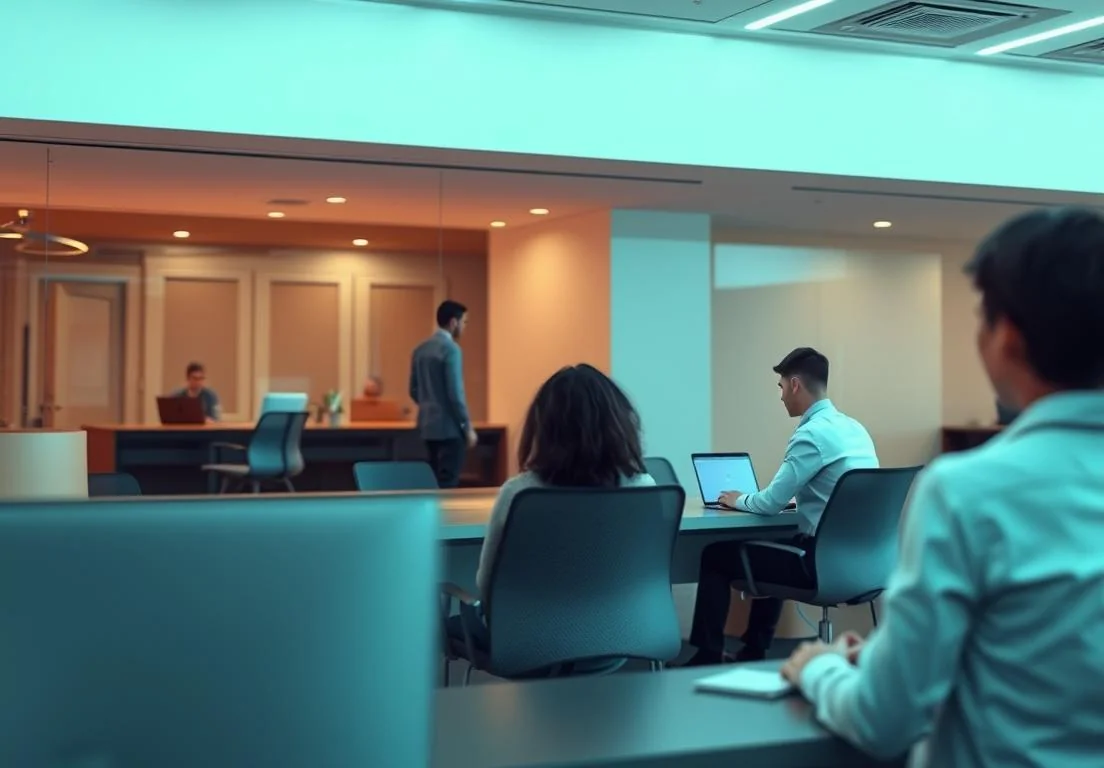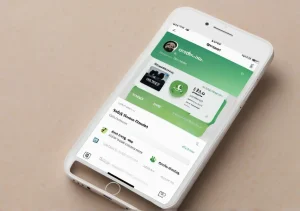In today’s fast-paced tech landscape, staying relevant is more crucial than ever. At Spotify, the ethos of continuous learning isn’t just an abstract concept; it’s a vital ingredient for career success.
Embracing continuous learning at Spotify opens doors to innovation, collaboration, and growth, making it easier to adapt to the ever-evolving music streaming industry. This isn’t a simple checklist but a transformative journey that promises exciting opportunities and the chance to stay ahead. Intrigued? Let’s explore the secrets of leveraging continuous learning for career advancement at Spotify.
Key Takeaways:
- Embrace continuous learning at Spotify to foster collaboration, innovation, and personal growth within a supportive culture.
- Utilize diverse learning opportunities, from formal training to peer-led initiatives, to enhance your skills and contribute to your team’s success.
- Engage in feedback and mentorship to refine your abilities, navigate your career path, and harness the power of cross-functional connections.
The Learning Culture at Spotify
At Spotify, continuous learning isn’t just a nice-to-have; it’s woven into the very fabric of the organization. The company champions a growth mindset, encouraging employees to embrace feedback and seek out new skills without the fear of failure. This isn’t a place where you’re just filling a role; you’re actively building your career.
One standout aspect of this culture is its emphasis on collaboration and sharing knowledge. Teams often hold “Lunch and Learn” sessions where individuals can present on topics they’re passionate about, creating a vibrant atmosphere of curiosity and growth. Plus, there’s room for experimentation—employees are encouraged to pursue their interests and explore areas outside their immediate function. This holistic approach makes learning feel organic rather than obligatory.
Listening to colleagues openly sharing insights and learning experiences fosters a sense of community. New ideas aren’t just welcomed; they’re celebrated. This environment helps cultivate a workplace where diverse perspectives are not only recognized but truly valued.
What Learning Opportunities are Available?
Spotify goes beyond the conventional training programs, offering a treasure trove of learning opportunities designed to meet various professional needs and preferences. Here’s an overview of the main avenues available for employees:
Formal Training Programs : Structured courses covering leadership, technical skills, and everything in between. Whether you’re looking to sharpen your coding skills or dive into project management, there’s something for everyone.
Peer-led Initiatives : These grassroots efforts allow employees to share their expertise with others, whether through workshops or informal gatherings. If you’re passionate about a subject, Spotify encourages you to lead a session.
Mentorship Programs : Matching less experienced employees with seasoned veterans creates an invaluable learning environment. It’s a fantastic way to gain insights and personalize professional development.
Access to Online Learning Platforms : Platforms like LinkedIn Learning and Coursera provide employees with a wealth of resources at their fingertips. Want to learn a new programming language or pick up public speaking? You’re all set!
Innovation Weeks : Dedicated time for employees to work on any project they choose fosters creativity and collaboration. Here, you can experiment with ideas, potentially leading to professional growth or even new projects within the company.
By taking advantage of these varied learning opportunities, you’re not just bolstering your own skill set; you’re also contributing to a culture of continuous improvement that benefits the entire team. These offerings reflect Spotify’s commitment to employee development, making it an exciting place for anyone eager to grow.
How Does Continuous Learning Impact Career Growth?
Continuous learning is a game changer at Spotify, linking directly to career advancement. When employees embrace new knowledge and skills, they’re not just onboarding fresh ideas; they’re positioning themselves for growth. Take Sarah, a data analyst at Spotify. By participating in various training sessions and data science workshops, she transitioned from basic reporting to leading data-driven projects. Sarah’s commitment to learning opened doors that fortified her role, making her invaluable to her team.
Employees like Jordan, a software engineer, also found success through continuous learning. He regularly taps into Spotify’s extensive library of online courses and industry conferences, which has kept him ahead in rapidly changing tech trends. That dedication helped him climb to a lead engineer position within just a couple of years. It’s clear: at Spotify, actively seeking out growth opportunities elevates not only individual careers but also the company’s innovative edge.
Fostering a culture where continuous learning is prioritized encourages cross-departmental collaboration and knowledge sharing, creating a buzz of ideas that fuels project success. By regularly engaging in skill-building activities, employees cultivate not just their personal development but also Spotify’s overall mission to enhance its platform.
What Skills are Most Valued at Spotify?
Spotify thrives on innovation, and there are key skills that particularly stand out. Technical proficiency in programming languages like Python and Java is essential, but it doesn’t stop there. Critical thinking, adaptability to change, and cross-functional collaboration are hugely valued. Continuous learning plays a vital role here, as it helps employees sharpen their technical and soft skills.
Some essential skills include:
– Data Analysis: Understanding trends and insights using analytics tools.
– User Experience Design: Creating interfaces that resonate with listeners.
– Machine Learning: Using algorithms to enhance personalized experiences.
To fully develop these skills, Spotify encourages employees to invest time in workshops, online courses, and team projects. So, it’s not just about gathering information—it’s about applying what you learn in real-world scenarios.
Here’s a unique angle: consider creating a “skills roadmap” for your career at Spotify. Start by identifying the skills you aim to develop and align them with upcoming projects or initiatives in the company. This proactive approach not only keeps you focused on your growth but also showcases your commitment to your career and to Spotify’s mission. By weaving personal development into your daily tasks, you’ll see a tangible impact on your career trajectory.
How to Integrate Learning into Daily Work Life?
Continuous learning doesn’t have to feel like a chore. At Spotify, it can blend seamlessly into daily routines with a few simple strategies. Start by setting aside dedicated time each week for personal development. This could be a quick afternoon session for reading articles, watching webinars, or coding alongside a colleague. Use your calendar to block this time off as a commitment to your growth.
Consider embracing the ‘learning by doing’ approach. For instance, if you’re working on a project outside your usual skill set, take that as an opportunity to explore new tools or methodologies. Don’t hesitate to ask colleagues who are proficient in those areas to share their knowledge during your project meetings.
Engaging in peer learning can also make a huge difference. Organize small group sessions where everyone shares insights on a specific topic or challenge. It fosters collaboration and keeps the learning experience fresh and interactive.
Another effective strategy is to utilize Spotify’s internal tools and resources. Whether it’s the learning platform or team workshops, these are designed to keep you engaged. Actively participate in these opportunities—not just to soak in info but to apply it immediately in your day-to-day tasks.
Despite a busy schedule, always remind yourself to reflect on what you’ve learned at the end of the week. This could be a quick self-assessment or even a casual chat with a mentor. It’s the best way to cement new knowledge and ideas.
Why is Feedback Essential in Continuous Learning?
Feedback is the heartbeat of continuous learning at Spotify; it’s how we grow and enhance our skills along the way. Think of feedback not just as criticism but as a valued conversation that fine-tunes our abilities and perspectives. This culture of open communication cultivates trust, encouraging employees to share and receive suggestions freely.
At Spotify, creating avenues for feedback is crucial. Regular check-ins and feedback loops can turn casual comments into profound insights. Teams often engage in “retrospective” meetings, where they discuss what went well and where improvements are needed. This practice encourages everyone to express their thoughts, fostering a supportive environment for different opinions.
Incorporating 360-degree feedback can also amplify this process. When peers, managers, and even subordinates can provide input, it gives a holistic view of individual performance and areas for improvement. Employees at Spotify often learn from diverse perspectives, which enriches their professional journey.
To leverage feedback effectively, adopting a growth mindset is vital. Look at feedback as an opportunity to improve rather than a personal assessment. After receiving feedback, take time to reflect on it, identify specific actions you can take, and—most importantly—discuss with your peers how you can implement those changes.
Lastly, make it a habit to give constructive feedback to others—ask thoughtful questions, offer insights, and show appreciation for their efforts. In this way, you’re not only helping your colleagues grow but reinforcing a culture where everyone is encouraged to learn continuously.
What Role Do Mentorship and Networking Play?
Mentorship is a cornerstone of continuous learning at Spotify. Through targeted programs, employees gain access to experienced mentors, fostering a culture of knowledge sharing and growth. This isn’t just about formal mentorship; both peer-to-peer learning and informal connections can lead to significant career advancements. Think of it as cultivating relationships that mesh with your career aspirations. Don’t shy away from reaching out to colleagues in different departments or levels—cross-functional networks can open doors to novel perspectives and skillsets.
Internal networking events further enhance this learning culture. Spotify hosts regular meetups and workshops, allowing employees to connect with others who have unique expertise. Look out for sessions that resonate with your interests or career goals. Engage actively during these gatherings, as you never know who might provide insights or opportunities for your next big project.
Another angle is to seek reverse mentorship—where younger employees share fresh viewpoints with seasoned professionals. This not only bridges the generational gap but also nurtures a two-way learning street, enhancing both parties’ skill sets and broadening the overall company culture.
Interesting Facts About Learning at Spotify
Spotify’s commitment to learning is evident in its innovative approach. For instance, the company’s “Hack Week” allows employees to step out of their usual roles and experiment. During this time, teams brainstorm and prototype new ideas, often leading to groundbreaking projects that influence Spotify’s direction.
Here are some fascinating aspects of learning culture at Spotify:
- Learning Budget: Employees are given an annual budget to invest in courses, books, and workshops that align with their career growth.
- Diverse Learning Formats: From podcasts and video tutorials to hands-on workshops, Spotify encourages various ways for employees to learn and expand their skill sets.
- Personal Development Plans: Regular check-ins with managers help customize growth paths, ensuring that personal goals align with team needs, creating a win-win for both parties.
- Leadership Development: Spotify offers tailored programs aimed at nurturing future leaders, ensuring that talent is continuously cultivated from within.
Taking a cue from Spotify’s method, actively pursue opportunities to experiment and innovate. Find ways to apply what you’re learning in real-time, whether that’s through side projects or collaborations with colleagues. Integrating your learning into your work not only reinforces skills but also showcases your initiative.



